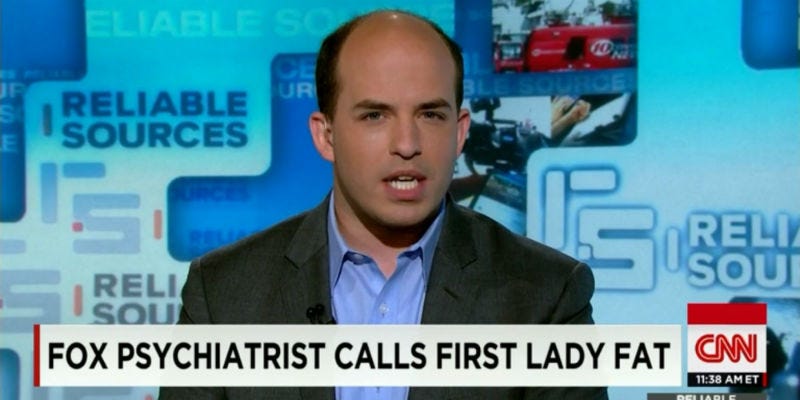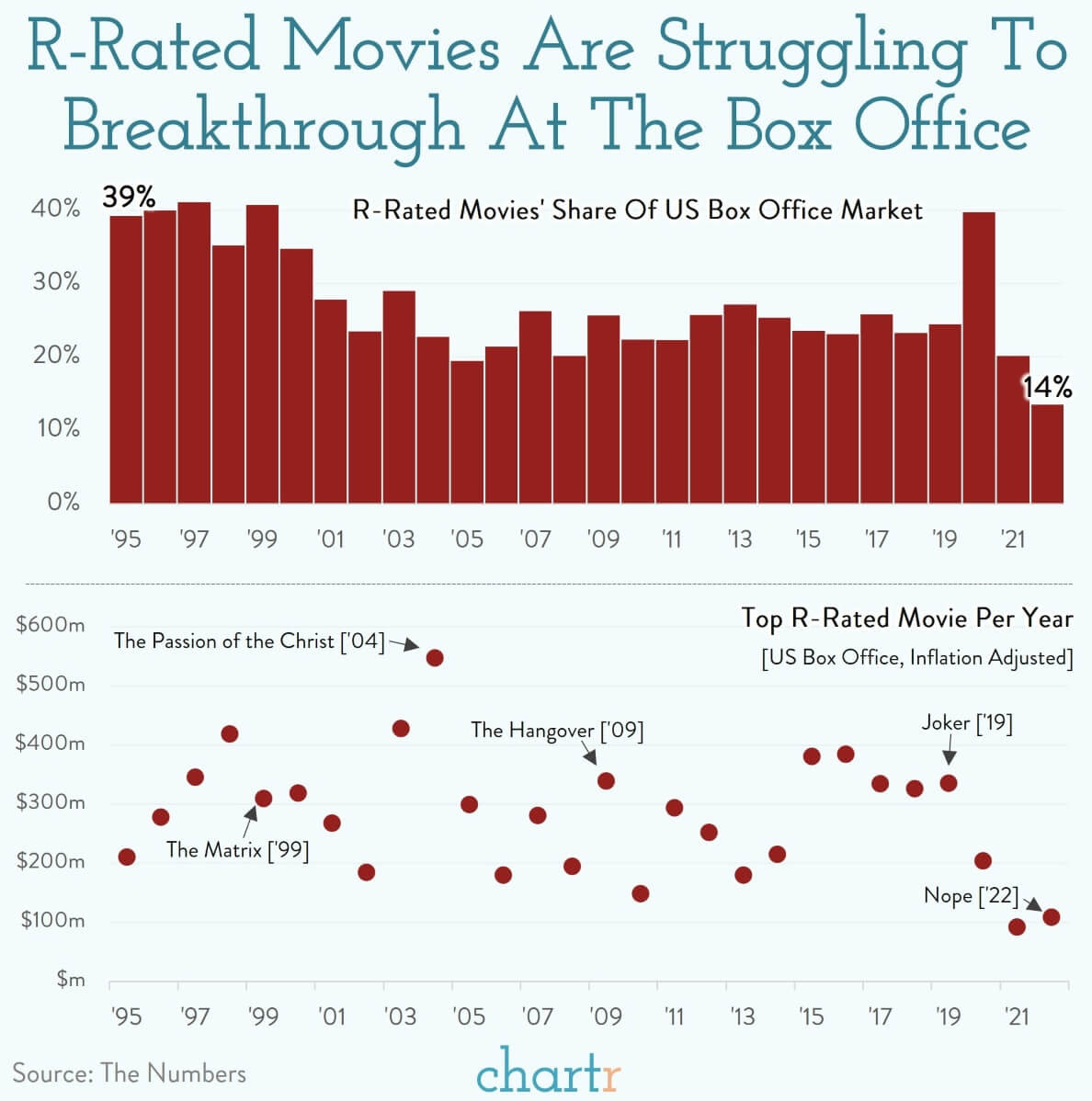Too Much TV: Your TV Talking Points For Thursday, August 18th, 2022
It's a funny thing about taking on a lot of debt. You have to figure out how to pay it off.
Here's everything you need to know about the world of television for Thursday, August 18th, 2022.
THE GREAT WARNER BROS. DISCOVERY CONTENT ERASURE
I've been writing for a couple of weeks about small groups of what seem to be random titles disappearing from HBO Max and Discovery+. The streamers ignored questions about the moves, attributing the exits to the normal flow of content on and off the services.
Yesterday, a more complete of titles that are set to disappear from HBO Max tomorrow surfaced. Prompting a boilerplate response from Warner Bros Discovery, which reads as if it had been run through the "stock PR answer" machine a few too many times:
"As we work toward bringing our content catalogs together under one platform, we will be making changes to the content offering available on both HBO Max and discovery+. That will include the removal of some content from both platforms."
Like most controversial decisions happening at Warner Bros. Discovery right now, the content removals are primarily driven by money. Or, to be specific, a lack of money.
The merger of Warner Media and Discovery created a lot of debt and company executives have been promising investors they can find at least $3 billion in almost immediate savings. Which still leaves the company with about $50 billion or so in additional debt, but who's counting?
Here's the thing about finding $3 billion in synergies and cost-cutting. It's really hard to do. Firing a bunch of people is only of marginal help and in those cases, there ironically is additional short-term costs related to severance, etc. You can cancel a few projects, but that's not always helpful either. Depending on where the timeline of the project might be when you cancel it, you can end up not saving all of that much money. Or even worse, you cancel a project that isn't in production yet, which may or might deliver a net savings to the bottom line.
But like all good media moguls, WBD head David Zaslav and the rest of the Scooby Gang have opted for the time honored approach of taking maximum advantage of the tax code to write down and write-off assets.
One big move in that direction was the nearly $800 million content write down which included the shelving of the nearly finished film Batgirl. A source at the company familiar with the moves told me those specific write downs were timed to the merger and needed to take place before the end of August. The challenge is that companies have to give what at least sounds like a legitimate business rationale for the write downs and in those cases, WBD was arguing the value of those assets had been inflated by the company's previous management. That's part of the reason why several representatives for the company had been privately telling journalists the Batgirl movie wasn't very good. Claiming the movie (and other projects) weren't of the high quality that executives had expected opened the door legally for the massive write-offs.
I was also told that while some of the recent content moves have been the result of strategic decisions - for instance, shifting away from having every HBO Original streaming in every territory - many of the decisions that are making news are the result of the need to boost the bottom line.
Even after it was patiently explained to me. I can't claim to understand all of the nuances of the tax code. But apparently the merger allowed the company to evaluate and later write-off content they argued had underperformed expectations. Basically, for tax purposes all shows and movies have a "profit life expectancy." This is the amount that the company estimates it will make over the life of the project and it's a very common financial metric for media companies. For instance, it's one of the key pieces of data Netflix uses to decide whether or not to renew a show.
As it turns out, a recent merger made it much easier for WBD to capture tax savings and redistribute spending by allowing it to take content out of circulation and then write-off the money it's estimated it would have made over the remainder of its lifecycle. And like the other write-downs, this had to be completed by the end of the month. Which helps explain the very short notice to subscribers that some of their favorite titles were going away.
While these types of decisions happen all the time, it almost never happens on this scale. In part, because it can cause real problems in the medium and long term for a company. It's like killing and eating your cows before they have a chance to birth calves and continue the cattle business for another generation.
And while that shelved content can eventually be licensed elsewhere, those moves have their own negative tax consequences.
As for how the titles that are to be eliminated were chosen, that is not entirely clear in all cases. In some situations, the shows has not garnered the audience numbers projected internally and that made them an easy choice to be written down.
Some of the decision making also seems to have been somewhat strategic. I was told more than once that animation is “not a priority” for the company, which might explain why so many animated titles are facing the ax.
It's not clear how many titles will eventually disappear from HBO Max and Discovery+. From what I can verify from outside sources, the number of removed or soon-to-be-removed HBO Max titles globally is well over 80. But I've been told by a source the total is close to 100. The situation at Discovery+ is even less clear. It's difficult to track the expiration process at Discovery+, and it's even more challenging since the streamer doesn't usually acknowledge the comings and goings of content. The total seems to be at least 20, although it is likely much higher.
SPEAKING OF GETTING RID OF SHOWS
News broke earlier today that CNN is canceling its long-running weekly media analysis program Reliable Sources. The show’s longtime host Brian Stelter and much of the Reliable Sources staff are exiting the network.
I'm sure there is some cost-cutting included in this move, but I suspect it's driven by non-financial reasons. CNN head Chris Licht seems to have a vision for the network that doesn't include potentially controversial programming such as a media analysis show. And WBD head David Zaslav reportedly is not a big fan of the press coverage he has been receiving in recent months, so that likely didn't help the situation.
Still, I'll be interested in hearing both Licht's official reasoning for the move as well as where host Brian Stelter ends up. While I didn't always agree with his approach, he is very good at his job and the world needs more media criticism, not less of it.
I got a chuckle reading the NY Times write-up of the move, which included this classic passive-aggressive statement from longtime media mogul John Malone, who is an investor in Warner Bros Discovery and who also apparently believes CNN currently includes too many people giving their opinion:
In an email to The New York Times, Mr. Malone said that he had "nothing to do with" the cancellation of Mr. Stelter’s show. Mr. Malone said he wants “the 'news' portion of CNN to be more centrist, but I am not in control or directly involved."
Which could just mean he wasn't the one making the final decision. But I'd bet he had an opinion and that he shared it.
On a side note, I'll be interested in seeing that happens with the daily Reliable Sources newsletter, which is an extremely useful tool for keeping track of what is happening in the world of media.
In the meantime, host Brian Stelter just tweeted out this update:
SIX BIG MISCONCEPTIONS ABOUT THE STREAMING VIDEO BUSINESS
Every industry deals with its share of misconceptions about how the business really works. I recently posted a piece on the misconceptions about the business that drive me crazy:
Do you think of Discovery+ as primarily a home for unscripted television mostly shifted over from linear television? Then you should know that in many other markets, Discovery+ looks very different. In some territories, it also includes linear channels as well as live sports and other events. All of which makes the "combining HBO Max and Discovery+" story a lot more complicated.
There are all kinds of local quirks of the streaming industry that don't get much attention here in the States. For instance, did you know that the rights owners of French programs viewed on Netflix in France, Luxembourg, and Belgium receive royalties every three months from the streaming service under an agreement signed in 2014 between the streamer and the SACD (the Society of Dramatic Authors and Composers)? Under the terms of the agreement (which Netflix signed just before it launched in France), rightsholders receive both a complete rundown of the number of people who watched the program and payment based on those numbers.
I mentioned in the piece that it could have easily included 10 or 15 misconceptions and some readers had suggestions of their own:
"There’s a huge recency bias in almost all streaming coverage — obviously your work at All Your Screens being an exception. Library/legacy TV series and films matter a lot to audiences, who often see great value in past titles viewed as obscure or out-of-date. Yes, licensing issues can be complicated. Sure, some titles are objectionable/dated to the point that wide release isn't worth it. But demand is high for hidden gems, as your coverage has shown. Most entertainment coverage never even scratches the surface of these issues, they just regurgitate streamers' monthly press releases."
- Josh Shepherd, Entertainment Journalist
"It drives me nuts when people are surprised when studios and streamers aren't interested in preserving their legacy or remembering the way things used to be. These companies aren't people. They don't care about history or culture. They care about the bottom line and describing some executives as "talent friendly" is just a sad laugh.
--Barb L
"I wish so many executives didn't believe that there is no money to be made in streaming older TV shows. There are a few major household name shows available. But try finding a lesser comedy from the 1980s or one of the many 1990s dramas that have now been forgotten. They don't think the audience will respond to those shows and they are wrong. That is the biggest misconception to me."
--Alan A., Seattle
CHART OF THE DAY
ODDS AND SODS
* In the new Food Network series Bobby's Triple Threat, a contestant chef will face Tiffany Derry, Michael Voltaggio and Brooke Williamson in three head-to-head rounds for a chance to win $25,000. The new series premieres Tuesday, September 27th.
* Showtime has renewed The Chi, created by Lena Waithe, for a sixth season. The pickup comes a couple weeks ahead of the show’s season five finale, which will hit Showtime’s streaming platforms on September 2nd and debut on air September 4th.
TWEET OF THE DAY
WHAT'S NEW FOR THURSDAY
Here's a quick rundown of all the new stuff premiering today on TV and streaming:
Blinded Season Two Premiere (Sundance Now)
Dragons: The Nine Realms (Hulu)
Glorious (Shudder)
He-Man And The Masters Of The Universe (Netflix)
Inmate To Roommate Series Premiere (A&E)
Inside The Mind Of A Cat (Netflix)
In The Vault Season Two Premiere (Crackle)
Pulse Series Premiere (BET+)
Selena + Chef Season Premiere (HBO Max)
She-Hulk: Attorney At Law Series Premiere (Disney+)
60 Days In Season Premiere (A&E)
Tekken: Bloodline (Netflix)
The Diana Investigations (Discovery+)
The Innocents (Shudder)
The Undeclared War Series Premiere (Peacock)
What the Flocka: Waka & Tammy (WE tv)
When You Least Expect It (Paramount+)
Click Here to see the list of all of the upcoming premiere dates for the next few months.
SEE YOU FRIDAY!
If you have any feedback, send it along to Rick@AllYourScreens.com and follow me on Twitter @aysrick.







